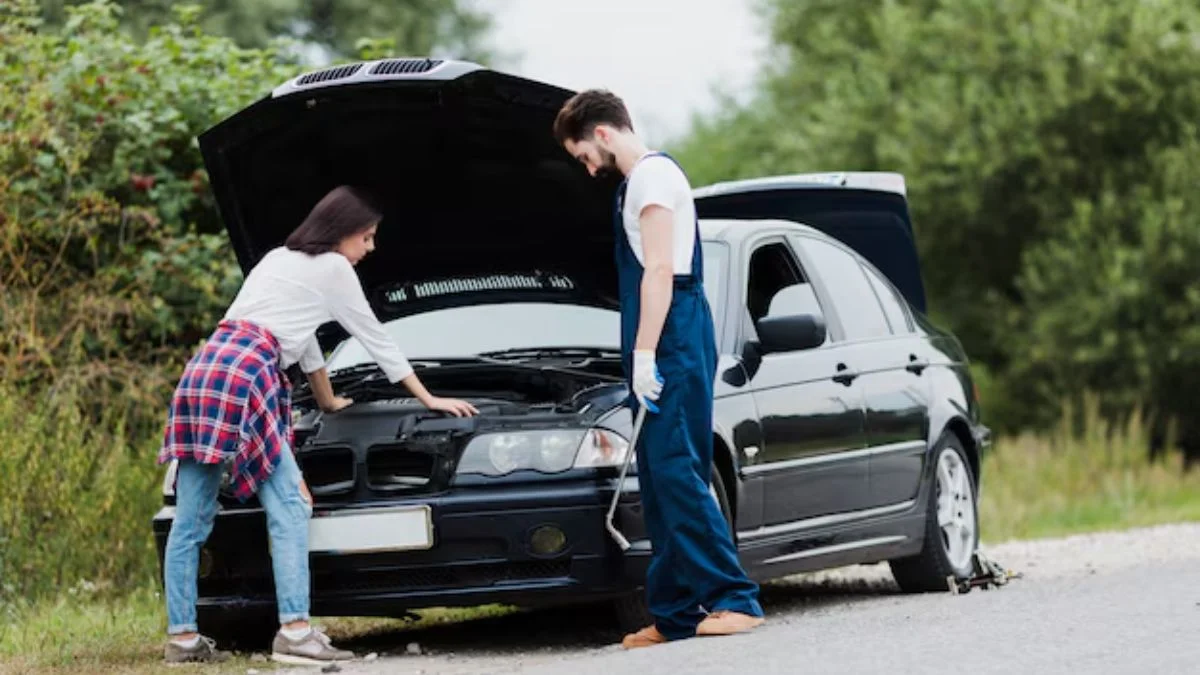Car repossession is a stressful and often financially devastating experience. When someone fails to meet the terms of their auto loan, most commonly by missing payments, lenders have the legal right to take the car back. This process, known as repossession, can happen swiftly, leaving the borrower without transportation and with a potentially damaged credit score. However, what many people don’t realize is that there are certain legal loopholes and tactics that can be used to potentially delay or even prevent a car from being repossessed.
In this article, we’ll dive deep into the concept of car repossession loopholes, exploring how they work, how they can protect vehicle owners, and what financial and legal implications may arise. We will also address commonly asked questions surrounding repossession, including issues like financial assistance, reversing repossessions, and whether hiding a car from repossession can lead to criminal charges.
What is Car Repossession?
Car repossession occurs when a lender reclaims a vehicle due to missed loan payments or other violations of the auto loan contract, such as failing to maintain insurance. When financing or leasing a car, the lender holds the vehicle’s title as collateral until the borrower fulfills all payment obligations. If payments are missed, the lender can legally repossess the car.
Repossession is typically outlined in the loan agreement. Most states allow lenders to seize a vehicle without prior notice as long as there’s no “breach of peace” during the process. This means the car can be taken from a driveway or public place at any time. If the lender succeeds in repossession, they typically sell the car and apply the proceeds toward the outstanding loan balance.
Car Repossession Loopholes: What Are They?
Car repossession loopholes refer to legal strategies or specific actions a borrower can take to delay or avoid the repossession of their vehicle. While it’s essential to remember that these loopholes aren’t always a guaranteed way to stop repossession, they can provide a temporary reprieve or, in some cases, a more permanent solution.
1. Bankruptcy Filing
One of the most well-known loopholes for avoiding repossession is filing for bankruptcy. When an individual files for Chapter 7 or Chapter 13 bankruptcy, an automatic stay is enacted. This stay temporarily halts all collection activities, including car repossession. Depending on the type of bankruptcy, the borrower may be able to reorganize their debts or discharge them entirely, which could prevent repossession permanently.
- Chapter 7 Bankruptcy: In Chapter 7, assets are liquidated to pay off debts. If the borrower has fallen behind on car payments, they may lose the vehicle, but in some cases, reaffirming the car loan can prevent this.
- Chapter 13 Bankruptcy: In Chapter 13, the borrower reorganizes their debts and creates a payment plan. This can allow the borrower to catch up on missed car payments over time and avoid repossession.
2. Statute of Limitations on Car Repossession
Every state has its own statute of limitations on car repossession, which dictates how long a lender has to repossess a vehicle after a borrower defaults on their loan. If the lender doesn’t take action within this timeframe, they lose the legal right to repossess the car.
- Statute of Limitations on Car Repossession: Most states have a statute of limitations ranging from three to five years for written contracts, such as car loans. If the lender fails to repossess the car within this period, the borrower may be able to keep the vehicle without facing further legal action.
3. “Right to Cure” Period
In some states, lenders must provide a “right to cure” notice before repossessing a vehicle. This notice gives the borrower a specific amount of time, typically 10-30 days, to bring their loan current and avoid repossession. If the borrower makes the necessary payments within this period, the lender cannot legally repossess the car.
Understanding whether your state has a right to cure period and how long it lasts can be a critical loophole in buying yourself more time.
4. Contesting the Sale of the Repossessed Vehicle
Even after a car is repossessed, borrowers still have certain rights. If the lender sells the vehicle to cover the remaining loan balance, the borrower can contest the sale if the car was sold for significantly less than its fair market value. By challenging the sale price, the borrower may be able to reduce or eliminate the remaining debt they owe after the sale, known as the deficiency balance.
- Deficiency Judgments: After a repossessed car is sold, the lender may seek a deficiency judgment for any remaining loan balance. Contesting the sale price may help lower the amount the borrower is responsible for.

5. Finding Financial Assistance for Car Repossession
When facing repossession, some borrowers may be eligible for financial assistance for car repossession. Government programs, nonprofit organizations, and even some lenders offer financial aid or hardship programs to help individuals bring their loans current and avoid repossession. Researching these options early can provide the necessary resources to prevent repossession.
How Hiding a Car Affects Repossession
It’s not uncommon for individuals to attempt to avoid repossession by hiding their vehicle. However, this approach can have serious consequences.
Can You Go to Jail for Hiding a Car from Repossession?
In most cases, simply hiding a car from repossession agents does not result in criminal charges. However, if a borrower actively works to deceive the lender or the repossession agent—such as providing false information about the car’s location—this could lead to criminal charges. In some states, it is illegal to conceal a vehicle with the intent to prevent repossession, which can result in fines or jail time.
While hiding a car might delay the repossession process, it’s important to weigh the risks carefully, as it can lead to more significant legal trouble.
Reversing a Car Repossession
In some cases, it may be possible to reverse a car repossession and get the vehicle back. This often depends on the terms of the loan agreement, the lender’s policies, and state laws.
Can a Repossession Be Reversed?
Yes, it is possible to reverse a repossession under certain circumstances. If a borrower can bring their loan current by paying the past-due amount, along with any additional fees (such as repossession fees), the lender may allow them to reclaim the vehicle. Additionally, if the borrower can show that the repossession was conducted illegally or in violation of state laws, they may have grounds to reverse the repossession.
Some states also offer a post-repossession redemption period, where the borrower can pay off the full loan balance (plus fees) to recover the car.
Key Legal Considerations in Car Repossession
Understanding the legal landscape of car repossession can give borrowers a better idea of their options and rights.
1. Breach of Peace During Repossession
Repossession agents must follow the law when reclaiming a vehicle. They cannot use force, threaten violence, or break into a locked garage to repossess a car. If they violate these rules, the repossession may be considered illegal, and the borrower could have grounds to sue the lender or the repossession company.
2. Deficiency Judgments
Even after a repossession, the borrower may still owe money to the lender. This is called a deficiency balance. For example, if the car is sold for less than the remaining loan balance, the lender may seek a deficiency judgment for the difference. Understanding how deficiency judgments work and how to contest them can be an essential part of navigating repossession.
Conclusion
Car repossession is a challenging and often overwhelming process, but understanding the loopholes and legal strategies available can help borrowers protect their vehicles and financial future. From filing for bankruptcy to understanding the statute of limitations on car repossession, these loopholes offer opportunities to delay or avoid repossession altogether. However, it’s essential to act quickly and consult with legal professionals to ensure your rights are protected.
Whether you’re looking for financial assistance, wondering if repossession can be reversed, or seeking ways to avoid legal trouble, the key to surviving car repossession lies in understanding your rights and exploring every possible option.
Frequently Asked Questions (FAQs)
1. What financial assistance is available for preventing car repossession?
Various programs offer financial assistance for car repossession, including government assistance, nonprofit organizations, and hardship programs provided by lenders. These programs can help individuals bring their auto loan current and prevent repossession.
2. Can you go to jail for hiding a car from repossession?
Hiding a car to avoid repossession typically does not lead to jail time. However, actively concealing the car or providing false information to the lender may result in criminal charges in some states.
3. Can a repossession be reversed?
Yes, repossessions can sometimes be reversed if the borrower brings their loan current or pays off the entire loan balance, including fees, within the post-repossession redemption period. In some cases, illegal repossession practices may also allow for a reversal.
4. What is the statute of limitations on car repossession?
The statute of limitations on car repossession varies by state but generally ranges from three to five years. After this period, lenders lose the right to repossess the car if no action has been taken.
5. How does bankruptcy affect car repossession?
Filing for bankruptcy, especially Chapter 13, can halt repossession temporarily through an automatic stay. It may also allow borrowers to restructure their debts and catch up on missed payments to prevent repossession altogether.
6. Can a lender repossess a car without warning?
In most states, lenders are not required to give prior notice before repossessing a vehicle. However, some states have a “right to cure” period, which gives borrowers a chance to bring their loan current before repossession can occur.









